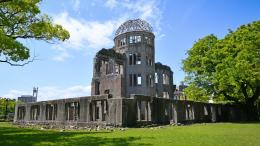Rule of Law and Sustaining Peace: Towards More Impactful, Effective Conflict Prevention
How has the UN’s rule of law support contributed to lowering the risks of violent conflict? A major new report based on eight in-depth case studies conducted by UNU-CPR – in close consultation with relevant UN peace operations, agencies and field offices – explores this question and sets out an actionable framework for rule of law policymakers and practitioners.
The cases were selected to cover a range of settings, from countries hosting UN peacekeeping operations (Central African Republic [CAR], Democratic Republic of the Congo [DRC] and Mali) or special political missions (Colombia, Afghanistan and Lebanon),to non-mission settings (Bangladesh, Bosnia and Herzegovina) and reflect the breadth of the UN’s rule of law work. The cases offer insights into both the types of rule of law interventions and the ways in which country contexts may enable or inhibit the UN’s ability to have a strong impact on conflict prevention.
The report is designed to provide an actionable framework for rule of law policymakers and practitioners across the UN system. To position the UN’s rule of law work conceptually at the centre of the UN’s broader conflict prevention and sustaining peace priority, the authors draw on the eight case studies to evaluate the extent to which the UN’s rule of law engagements may have helped reduce the risks of violent conflict. This analysis provides lessons and guidance to policymakers and practitioners on how to design and implement effective rule of law strategies in a range of settings.
Access Rule of Law and Sustaining Peace: Towards More Impactful, Effective Conflict Prevention here.


